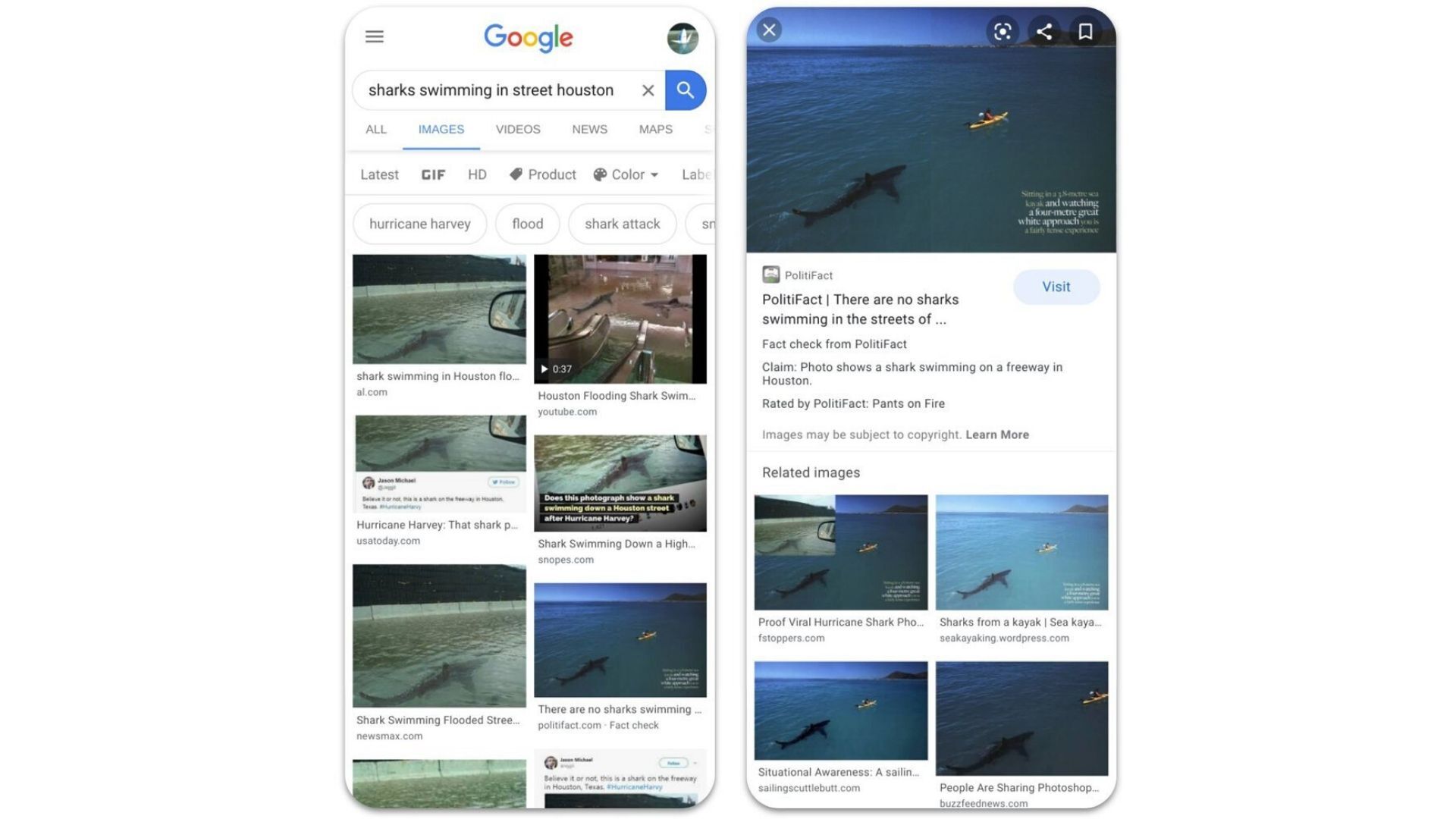It had to happen consdering the amount of fake images flooding social media and even mainstream media platforms. Google is introducing fact check labels for images in its search results around the world to crack down on manipulated photos.
The tech giant is rolling out a feature wherein when you search on Google Images, you may see a ‘Fact Check’ label under the thumbnail image results. When you tap one of these results to view the image, you’ll get a summary on the 'dubiousness' of the image.
Google says these labels may appear both for fact check articles about specific images and for fact check articles that include an image in the story.
"Starting today, we are surfacing fact check information in Google Images globally to help people navigate these issues and make more informed judgments about what they see on the web. This builds on the fact check features in Search and News, which people come across billions of times per year," Google said in a post.
“Photos and videos are an incredible way to help people understand what’s going on in the world. But the power of visual media has its pitfalls — especially when there are questions surrounding the origin, authenticity or context of an image,” said Google product manager Harris Cohen.
Google is applying the same fact-checking technology it uses on YouTube, Search, and News for images.
- Android 11 Update: release date, beta, features and everything we know so far
- How to download the Android 11 beta to your smartphone
Is that image of a shark swimming down a street in Houston real? Google Images now has "Fact Check" labels to help inform you in some cases like this (no, it was not real). Our post today explains more about how & when fact checks appear in Google Images: https://t.co/YisZuOyGEH pic.twitter.com/aRntlIo6qTJune 22, 2020
Why now?
Just like fact checks on Search results, the fact-check won’t affect a web page’s ranking, so the relevant information underlying your image searches should still appear at the top of your results.
Google showed how the fact-check system works with an illustration of a widely circulated set of images which showed — falsely — sharks were swimming in the streets of Houston after a 2017 hurricane.

The new labels will be based on the ClaimReview database established by independent fact-checkers.
Google fact check on images is welcome, as having an independent check on the veracity of your images can only help slow the spread of misinformation across the internet.
Google's fact check on images has not come a day soon. There are genuine misgivings that the the upcoming US election can be manipulated with false imagery as well as fake news and social media posts.
Source: Google.
No comments:
Post a Comment